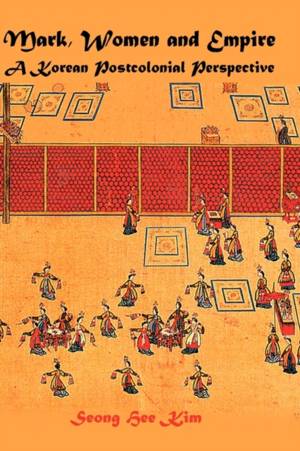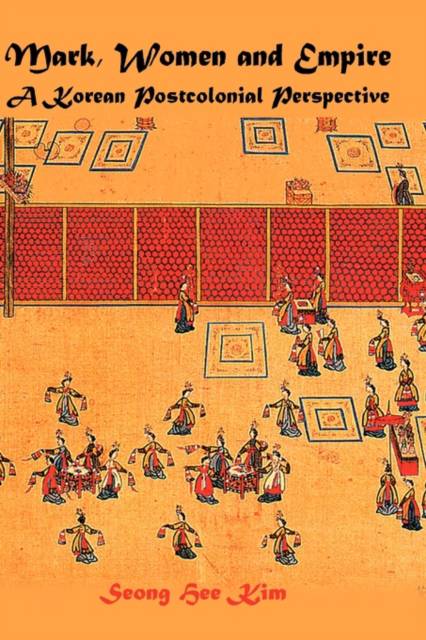
- Afhalen na 1 uur in een winkel met voorraad
- Gratis thuislevering in België vanaf € 30
- Ruim aanbod met 7 miljoen producten
- Afhalen na 1 uur in een winkel met voorraad
- Gratis thuislevering in België vanaf € 30
- Ruim aanbod met 7 miljoen producten
Zoeken
Omschrijving
As Mark's Gospel moves toward its climax, four stories of women challenge Jesus in his mission to establish the empire of God against the backdrop of the Roman Empire: those of the poor widow (12.41-44), the anointing woman (14.1-11), the women at the cross and the burial (15.40-41, 47), and the women at the empty tomb (16.1-8). They are stories that would seem to demand both a feminist and a postcolonial perspective on the part of their readers-yet Kim's is the first reading of the Gospel that has taken an explicitly postcolonial feminist stance. In addition to the feminist and the postcolonial themes, the third strand in Seong Hee Kim's approach arises from her Korean context, which provides her with the concept of Salim interpretation, that is, 'making things alive'. Starting from the reader's context, she develops a Salim hermeneutics for each of the four stories by engaging in a dialogue between the biblical story and the reader's use of her or his own imagination. The goal of her interpretation is such a making things alive, a mending of broken things, and an opening up of meaning-in contrast to the tendency of historical criticism, which has striven to identify a single, correct meaning in the biblical text.
Specificaties
Betrokkenen
- Auteur(s):
- Uitgeverij:
Inhoud
- Aantal bladzijden:
- 192
- Taal:
- Engels
- Reeks:
Eigenschappen
- Productcode (EAN):
- 9781906055646
- Verschijningsdatum:
- 2/03/2010
- Uitvoering:
- Hardcover
- Formaat:
- Genaaid
- Afmetingen:
- 156 mm x 234 mm
- Gewicht:
- 449 g

Alleen bij Standaard Boekhandel
+ 189 punten op je klantenkaart van Standaard Boekhandel
Beoordelingen
We publiceren alleen reviews die voldoen aan de voorwaarden voor reviews. Bekijk onze voorwaarden voor reviews.











